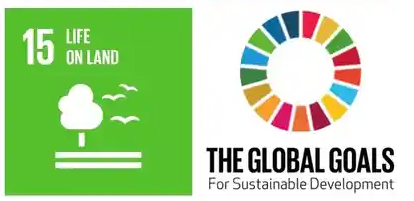Overview
Zanzibar is known as the Spice Island, the beautiful island of Zanzibar on Africa’s east coast is bursting with culture and history, seemingly at odds with its idyllic geography of white-sand beaches with palms swaying lazily in the sea breeze.
Together this makes Zanzibar a fabulous place to explore as well as a dream to relax and unwind from the normal life routine.
Enjoy the historical heritage of the city while experiencing the delicious food and meals produced from natural plants only available in Zanzibar. Let’s plan with you today!
Scope
- Duration: 7 Days Shadow of Zanzibar
- Price: From $__ per person sharing
- Destination: Zanzibar Island
- Enjoy charming and warmly team soon after arrival at the Airport and drop off at the hotel
- Enjoy the short ride from the airport to the hotel depending on arrival time, you can experience the kindly Swahili people
- Expect to meet Blessing safaris Team for tour briefing and other arrangements
- A beautiful start of the day with a heavy breakfast and a hot shower at the hotel
- Expect to travel with not only a travel guide but also friendly and knowledgeable Zanzibar expert
- The Stone town, Dolphin Tour, Spice Tours, Safari Blue Tour
- Feel and be part of the world Outstanding Island- The Soul of Africa
- Stunning view of stretching sand beaches in your hotel or during the relaxation day
- Expect to spend some minutes waiting for clearance at the airport entrance
- What a feeling? Transfer toward Stone town enjoy the stunning view of the rich historical city
- In Zanzibar! We let the hospitality amaze you with kindly and welcoming Swahili people around every angle of the island
- Delicious and healthy meals served on time, depending on the type of accommodation option you have chosen ( lodge, hotel)…
- Also, you will have an option to visit cultural villages for an authentic Africa experience
- Sleep in a safe and neatly adventurous environment secured and protected against mosquitos
- Expect direct communication with the ground team for tour monitoring but also in-case of any emergency. Your safety is our priority.
- Return to airport transfer for home departure or other arrangements with the Blessing Safaris team.
Itinerary
Upon arrival at Zanzibar Airport, you will meet our representative and transfer to Forodhani Park Hotel in Stone Town for dinner and overnight.
Accommodation: Forodhani Park Hotel
Your program starts with a morning visit by walk on our Historical Stone Town Tour. This tour takes you through fabled Stone Town, where history appears to stand still. With visits to the House of Wonders, the Palace Museum (People’s Palace), and the Arab Fort amongst others, it is a fascinating look at the essence of Zanzibar. You will see Zanzibar’s bustling market, winding alleyways, ornately carved and studded doors, two cathedrals, and countless mosques! Dinner and overnight stay at Forodhani Park Hotel.
Accommodation: Forodhani Park Hotel
The House of Wonders shows the cultural and architectural influences of Zanzibar, Britain, Portugal, and Oman over the centuries. When it was built it was the most modern building in East Africa. It was the first building to have electricity and an elevator. The House of Wonders hosts a historical exhibition and offers insight into Zanzibari and Swahili culture. It is a very important and visually stunning historic building in Stone Town. The House of Wonders is the grandest and tallest building in all of Stone Town and is found in a prominent location in front of the Forodhani Gardens on the old town’s waterfront along Mizingani Road. Dinner and overnight stay at Forodhani Park Hotel.
Accommodation: Forodhani Park Hotel
Today you will go on an excursion to the spice and fruit plantations close to Stone town for the famous Spice Tour. We have developed a special spice tour with in-depth information not only about spices but also organically grown herbs and a detailed description of their traditional uses in medicine cosmetics and cooking. After the tour, we invite for an opulent lunch at our guides’ home, where you can taste the spices and fruits. After lunch, we take you to your beach resort.
On the way, you will pass Jozani Forest, the last habitat of the rare endemic Red Colobus Monkey. With a local guide, you stroll through Jozani Chwaka National Park and look at the rare monkeys. If you wish you can even wander down the boardwalk to the fascinating Mangrove Ecosystem. Dinner and overnight at Forodhani Park Hotel.
Accommodation: Forodhani Park Hotel
Today you will visit Kizimkazi. Situated on the southern point of the island, Kizimkazi fishing village is home to several schools of bottle-nosed dolphins and Humpback dolphins, which can often be sighted following a short boat trip from the village. If you are lucky, you may be able to swim quite close to the dolphins, which can be a very rewarding experience. We are doing this trip in the afternoon to avoid the crowds of tourists in the morning, which in big numbers disturb the dolphins. Dinner and overnight at Amaan Bungalows
Accommodation: Amaan Bungalows
Morning at 7:30 picked up from your hotel to Fumba village where you will meet your special boat, it is about visiting three different sandbanks and you will stop in one of those for Seafood lunch where by later you do snorkeling and have the chance of seeing the dolphins. It is a full day back at 17:30 Fumba village and arrives at the hotel around 18:30 then returns to the hotel. Dinner and overnight at the Amaan Bungalows
Accommodation: Amaan Bungalows
Depending on your flight schedule and departure point you will be transferred to the Zanzibar Airport to take a flight back home. If you are flying out of Dar es Salaam or Nairobi, we will arrange a connection flight for you to catch your flight back home.
Costs & Inclusions
7 Days Shadow of Zanzibar price
| Pax | 1 pax | 2 pax | 3 pax | 4 pax+ |
| Price | $ | $ | $ | $ |
Tour Includes
- 2 ways transfers
- Full accommodation on vacation
- All park fees and government taxes
- Services of Professional multilingual guide
- Meals & drinks plans
Tour Excludes
- International airfare
- Items of a personal nature such as passport, visa, and traveler’s insurance.
- Tips to your vacation guide
Booking Process


General Travel Information
Climate. Tanzania climate is tropical and there are two rain seasons the longer being March through May and the shorter between October and November. The dry season lasts from July through October with clear sky and sunshine the whole day. The weather is suitable for beach vacations. The coastal area is normally hot and humid.
Visa: Coming to Tanzania has been made easy for visitors. It is easy to obtain a Tanzanian visa and there are three ways to obtain it: You can get a visa from a Tanzanian Embassy or High Commission from your country or upon arrival at the port of entry or you can apply online via Tanzania Immigration site, that is, the airport or at the border port. The above procedure applies to North American and European citizens. For more details about visas please contact the nearest Tanzanian Embassy or High Commission in your area.
Tanzania’s International Airports: Tanzania has two international airports, one outside the commercial capital Dar es Salaam (airport code: DAR) and the other near Arusha (and Mount Kilimanjaro) called Kilimanjaro International Airport (airport code: JRO). Charter flights and some international operators fly directly to Zanzibar Island (airport code: ZNZ)
Getting to Tanzania: If you’re planning to visit Northern Tanzania, the best airport to arrive at is Kilimanjaro International Airport (KIA). KLM has daily flights from Amsterdam. Ethiopian and Kenya Airways / Precision Air also fly into KIA.
If you’re planning to visit Zanzibar, southern and western Tanzania, it is ideal to fly to the capital city of Dar es Salaam. European carriers that fly into Dar es Salaam include British Airways, KLM and Swissair(which share codes with Delta). There are long-distance bus services between Tanzania, Kenya, and Uganda.
Attractions: The country has a lot to offer educationally, historically, for leisure and adventures. These adventures are safaris (game) driving in the National Parks like Serengeti, Manyara, and Tarangire to see wildlife, historical sites such as museums, landscapes, mountains, beaches, lakes, rivers, and culture.
Social life: The country has more than 120 tribes. Each tribe has its own vernacular. Although there are many languages “Swahili” was adopted as the national language in 1961 right after independence. The language has spread and is being used in the neighboring countries of Uganda, Kenya, and Central Africa. English is the second official language of the nation. You will find that Tanzanians are very welcoming and friendly.
Political system: Tanzania is perhaps the leading country on the continent of Africa for its political stability, peace, and tranquility. The political system is multi-party and the government is democratic. Political and religious conflicts are resolved through dialogue. In short, religious and tribal conflicts are very rare in this country because every citizen is free to worship as he/she pleases provided that one does not violate the law of the land
Currency: The national currency of Tanzania is the “shilling” (Tshs). Exchange rates vary and are subject to change anytime. Credit cards such as Euro-card, American Express, Master Card, Access, and Visa are accepted by most tourists’ hotels, carving shops, bureau de change, and banks. Also, Traveler’s Cheques in sterling pounds and US dollars are acceptable.
Religions: Because of its historical diversity Tanzania is a land of various religions. Nevertheless, the major religions are Christianity, Islam, Hindu, and African Traditional Religions. On the east coast – Dar es salaam, Bagamoyo, Zanzibar, and Tanga – the dominant religions are Islam and Hindu. This is due to the advent of Arabs and Eastern Indians which led to the spread of the two religions. The mainland is dominantly Christian and this is since European colonists, like Arabs, spread the Christian religion to the indigenous people.
Infrastructure & Accessibility: Major roads are paved and accessible throughout the year. Side roads and those around and within the National Parks are muddy and rough. For this reason, a 4WD car is required for safaris. Four-wheel cars include Toyota Land Cruisers, Land Rovers, and Toyota Hiace 4WD. These are the cars commonly used. The railway is also used in the eastern, southern, central, and western parts of the country.
Time: The time zone is GMT + 3 and the electricity is 220 – 240 V AC, 50 Hz.
This comes not actually from the company side but has something to do with yourself, you may wish to support locals by buying souvenirs or you may arrange some extra tours around the city or tipping to your team. Is the best way to acknowledge others as one of the best practices in life. Feel comfortable to discuss with your tour planner anytime
As any other endeavor challenges are part of the journey, you may experience congestion while arriving or you may experience network outage in most of the areas while on safari. Bear in mind that there are challenges which we can control as human beings but in case of natural disasters that we do not wish to happen if we are supposed to stop your tour, immediate actions are necessary to save a life.
Packing for a Tanzania safari is vastly different from packing for just about any other trip, and it offers a different challenge depending on whether you’re a solo traveler, family or couples. Not only do most safari-goers have weight restrictions on bush flights (a typical weight restriction is 15 kilograms or 33 pounds total per person, including camera equipment and carry-ons), but you also have the challenge of knowing which types of clothes to wear on safari are appropriate. We’ve been leading tours for years in Tanzania, and have put together our tips for what to pack for an African safari.
Duffel or soft-sided bag, TSA approved clear toiletry case,2 pairs of pants in the breathable fabric in earth tones,1 – 2 long sleeve shirts in chambray or earth tones,3 layering tanks or T-shirts, Utility jacket, Light scarf, Sports bra, Wide brim hat with chin strap, Closed-toe shoes like trail runners or fashion sneakers with good traction, Waterproof dry bag, Moisturizer, Sunscreen, Insect repellent with Deet, conditioner, Lip balm, Plug adapters/converters, USB flash drive, Memory cards for your camera and First aid kit
Travel insurance is very crucial once it comes to travel around the world, for any traveler. Getting travel insurance in Tanzania made easy through third parties companies which are dealing specifically with evacuation in case of any emergency during your tour, we do not sale it but we will be happy to recommend reliable compressive travel insurance that covers things like emergency helicopter rescue, medical evacuations expense it will be assisted protection tour to cover personal injury, repatriation expenses, and any kind of possibility illness will be covered. Having good travel insurance guarantees peace of mind while traveling, safety comes first.
Frequently Asked Questions
We are determined to ensure that you experience the luxury of genuinely memorable travel. On every trip, we aim to create a ‘charmed space’ within which you can relax, absorb fresh insights, be stimulated and charmed by new encounters – and have fun!
- Modest dressing is appreciated by everyone in Zanzibar. Foreign standards do not apply everywhere, so some items which are standard in your home country might not be appreciated. Bikinis and minis are fine for the beach, but in the villages and towns, women should cover their shoulders and wear a skirt or trousers that reach below the knee. Likewise, men should not go shirtless and should dress respectfully.
- If you are spending time on a beach in Stone Town or other beaches that are within sight from town, consider wearing beach clothes when not swimming. Being topless is not allowed for women.
You can take photos in public areas but ask for permission before taking pictures of individual people or private houses.
Clothes should be light, loose, washable, and preferably made from natural fabrics, rubber flip-flops or sandals are excellent choices for wandering around the villages and town, but a sturdy pair of walking shoes will normally be needed for sightseeing or walking through the forest. The tropical sun in Zanzibar is very strong, especially in midday. Sunscreen with high SPF and shady hats are preferable. It’s good to also pack sunglasses and a flashlight (the electricity is not completely reliable).
- Summer temperatures range from 20°C/68°F to 30°C/86°F, from December to March.
- Winter temperatures range from 19°C/66°F to 25°C/77°F, from March to May. From June to October, it gets very dry on the island with hot days and cool evenings.
- Late October through to mid-December is pretty hot with small thunderstorms.
Zanzibar is predominantly Muslim and filled with mosques. There are a few churches and temples for Christians and Hindus. Please do not enter the mosques if you are not Muslim.
When visiting Zanzibar, you should visit your local embassy to get details on your passport and visa. Depending on your nationality, you might be able to get a visa in Zanzibar or you might have to request it in your country. For more information kindly refers to our travel information section above.
- The unit of currency in Zanzibar is the Tanzanian shilling (Tsh).
- Foreign currency is usually accepted in most establishments in Tanzania. Traveler’s cheques and cash are widely accepted.
- Visa and MasterCard are accepted at all upmarket hotels and lodges.
Once you confirm your booking on a tour you will be sent further practical information – packing tips, detailed itineraries, including advice on health, passport and visa requirements, and minimum and maximum numbers of guests on tours.
- Zanzibar does not have any international banks. However, local banks will readily exchange foreign currency. The banks are open from 9:00 am to 4:00 pm, Monday to Friday, and closed on a Saturday and Sunday.
- The capital of Zanzibar is Stone Town, a place where the past and present have mixed very well. Stone Town is an interesting mix of East African, Arab, Indian, Persian, and European conquerors, traders, and seafarers.
- The city is filled with old buildings created in the different periods in Zanzibar. Being a small and busy island, the town does not provide the cleanest view, but it’s interesting to see the markets, harbor, and mosques, and to dine at a few restaurants.
Credit cards such as Visa and MasterCard are accepted at large establishments. There are many ATM cash machines in Zanzibar Town and can be used with Visa, Visa Electron, and MasterCard. Sometimes you need to try different banks before you find the one that works with your card. American Express works in Zanzibar, but not at as many ATM’s.
Whether traveling alone or with friends, Blessing Safaris guests often mention how particularly agreeable they find their traveling companions. our groups are deliberately small, comprising 2 to 7 guests especially for safari.
- If you stay longer and need to make several phone calls, you might want to consider a local SIM card. We can arrange this for you. International calls are generally much cheaper with local SIM.
- The country code for Tanzania (including Zanzibar) is +255.
Our team carefully researched and focused on trips which attract people with the same interest and naturally get on well with each other through their shared interests.
Memorable meals are one of the hallmarks of an excellent holiday. With the support of the best cooks, the quality of food and drink service is guaranteed. Depending on the service level or type of tour you have chosen, pre-discussion with your tour planner is a win-win situation for an enjoyable diet. Other tours are accompanied by our cook and others are inclusive service from our accommodation partners including hotels, private camps, and luxury lodges.
This aspect is much overstated. You will rarely see a snake, but if you do, it will most likely be from the safety of your safari vehicle. Tents and lodges all have bug screens fitted to windows and doors. In most areas where bugs or mosquitoes are prevalent, rooms and tents are also equipped with mosquito nets, adding to the idealistic ambiance. Bear in mind that malaria is a threat in most wildlife areas, and it is necessary to consult your doctor for advice before embarking on your safari.
Although more than 200 languages and dialects are spoken throughout Africa, this presents no problem as English is spoken throughout East and Southern Africa. Apart from English, all our professional guides are multilingual so we get you covered


